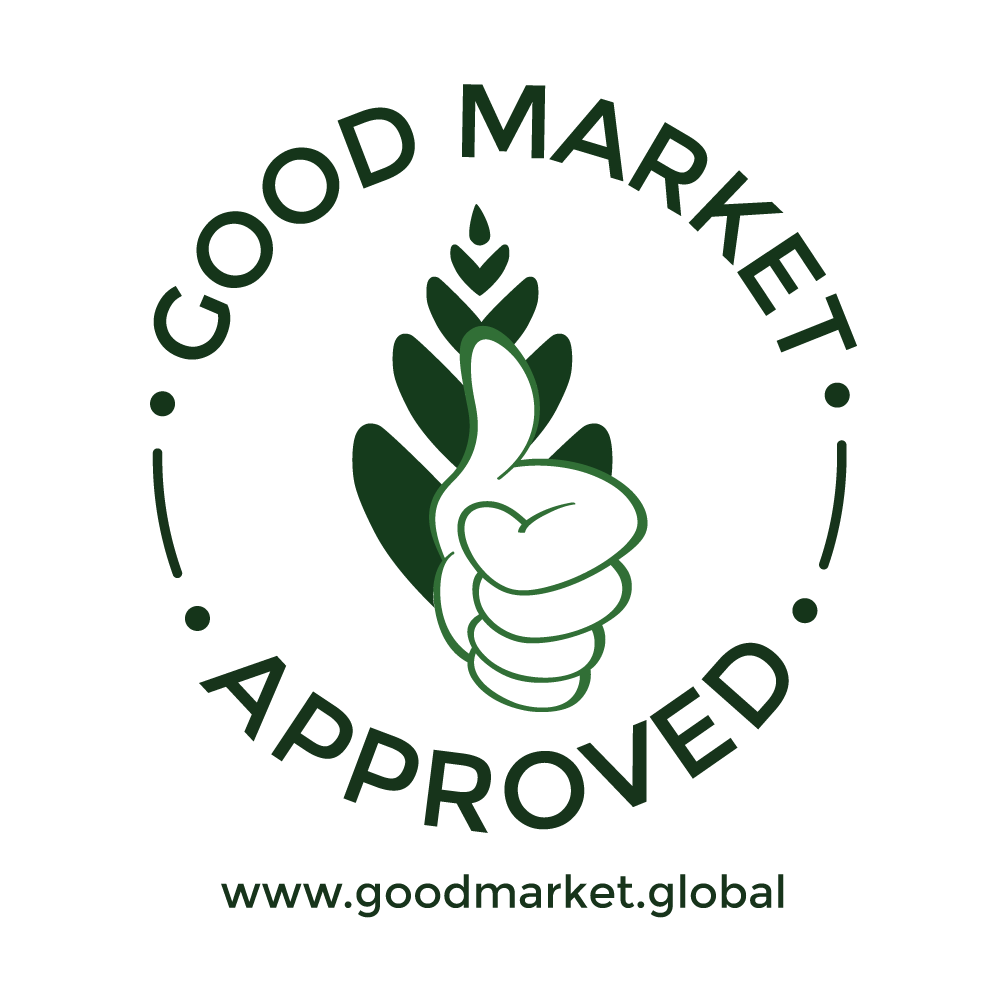We're about people, profit, and the planet.
That's right - we're about all three.
1. We firmly believe good work is good for wellbeing. When you're engaged in meaningful work you love, your health benefits. (Bonus points if your work is mission led or designed to do good for this work and / or for others)
2. We firmly believe organisations should do good in this world. And to do that, they need to succeed. After all, if a business is not profitable, it will eventually fail, and will be unable to generate any positive impact.
3. We firmly believe organisations have a responsibility to look after the wellbeing of their people and the wellbeing of the planet. Why? Because:
a) it's the right thing to do;
b) without healthy, engaged people, and a healthy, safe environment - productivity falls, incidents occur, and profitability disappears; and
c) the climate crisis has proven the days of extractive business models are over.
It's time for a regenerative approach to work.
At Kinwork, we're about regeneration and positive feedback loops.
If we align our people to the roles they love, if we optimise our businesses to maximise sustainability, performance, and impact - then everyone benefits. Great jobs are created, good work gets done, and the business generates resources that can be allocated to make the world a better place.
We call this a regenerative approach, and we firmly believe that together we can build purposeful organisations, ensure the distribution of good, meaningful work, and use the value that we generate - profit - to make genuine impact in this world, socially and / or environmentally.
Here we break it down in more detail:
The problem:
-
In 2016, WHO and the ILO estimated 1.9 million people died from work-related diseases and injuries (1). Simply working long hours alone, has caused approximately 745,000 deaths from work-related non communicable diseases, such as heart disease and stroke (2). Work, whether you're an employee, employer, contractor, sole trader, unpaid worker or volunteer, should contribute to your health, not detract from it - ever.
-
Climate change has been cited by the Lancet as the greatest health threat of this century. WHO has projected climate change to cause an additional 250,000 additional deaths between 2030–2050 from heat stress, malnutrition, and vector borne diseases, with direct health costs estimated to be between USD $2-4 billion per year by 2030 (3).
-
Heat stress poses a major threat to productivity and livelihoods. By 2030 it is estimated that the equivalent of 80 million full-time jobs, or 2.2% of global working hours could be lost, simply because it will be too hot to work safely (4).
-
Depression and anxiety cause an estimated 12 billion lost work days, and approximately USD $1 Trillion in lost productivity annually (5) - risks we can materially reduce through inclusive, safe workplaces and the smart design of work.
- Environmental degradation is impacting us all: 19-23 million tonnes of plastic alone is leaked into aquatic ecosystems every year, weakening nature’s resilience, entering our food and water supplies, and polluting the waterways and oceans upon which we depend (6). (Yes, nanoparticles of plastic are already in your body).
The solution (aka the Kinwork Way):
A people and planet positive organisation designs its strategy, daily operations, and culture so human wellbeing and ecological health improve as the business succeeds. It's not a one and done process, but rather a dynamic pursuit of both wellbeing and impact that benefits all as the business grows.
People and planet positive organisations blend rigorous social and environmental standards (think ISO, BSI and B Corp), with evidence-based health guidance (from peer reviewed literature, and WHO / ILO, or UN goals and standards), global climate science (IPCC), and wellbeing economy thinking (WEAll and Doughnut Economics), into how you govern, lead, and deliver value and care for your people.
How the leading movements fit together
- WHO: Frames work as an important social determinant of health, and health as a prerequisite for development. They provide evidence-based guidance on climate and health, occupational risks, and mental health at work, all critical to safe and healthy policy and program design.
- ILO: In 2022, the International Labour Organisation recognised a safe and healthy working environment as a fundamental right. That raises the bar for every employer, regardless of country, or the legislative frameworks they operate under.
- IPCC (AR6): The Intergovernmental Panel on Climate Change's 6th Assessment Report - aka the gold standard on evidenced based climate science. Their data shows that health impacts are widespread and will continue to rise without rapid mitigation and adaptation efforts - especially impacts associated with heat, vector-borne disease, and food/water security.
- B Corp (B Lab): Certified B Corps are businesses that pursue the people and planet positive mission. They believe in a way that promotes a better economic system, and operate under high standards of social and environmental performance, accountability and transparency. B Corp provides a practical blueprint and scorecard (B Impact Assessment) across five areas - Governance, Workers, Community, Environment, Customers - to measure, manage, and certify impact. Use it as a tool (whether or you certify or not) to determine where your organisation could possibly go.
- WEAll (Wellbeing Economy Alliance): Reorients economic success toward delivering good lives on a healthy planet - useful for creative thinking, strategy, budgeting, and policy lenses.
- Doughnut Economics (DEAL): Donut Economics Action Lab want to see the economy shift from being purely about economic growth, to being one centred around humanity. They model that we should operate inside a 'safe and just space' bounded by a social foundation (human needs) and an ecological ceiling (planetary limits) - aka run organisations that are people and planet positive. DEAL provide a clear mental model for boardrooms.
- Kinwork: We coach and certify founders, leaders, and practitioners using gold standard ICF aligned coaching principles and techniques to create organisations that are people, planet and profit positive. We empower them to overcome barriers and unlock their best strategic and creative thinking to put theory into practice and build organisations that are aligned to the above. We coach, and educate the next gen of work coaches that will see us shift toward an impactful wellbeing economy that embeds wellbeing and impact in all that we do.
What 'positive' looks like (the five pillars)
-
Purpose & governance
Anchor decisions to a clearly stated purpose that improves people and planet; embed targets and accountability at board and executive levels (think B Corp governance + stakeholder engagement). -
People & leadership
Build safe, healthy, and fair work by design. Consider factors such as workload, hours, autonomy, rest, inclusion, hybrid working options, and even rehabilitation and return-to-work pathways. These should be aligned to the ILO’s fundamental right to safe and healthy work, and structured to empower and promote wellbeing, inclusivity and performance. -
Systems & performance
Create a system that champions wellbeing as part of performance. Too often organisations focus on the worker - on individual factors - whereas the worker exists in a system that has historically been designed with extraction, not regeneration in mind. Map material risks and opportunities; reduce health and safety exposures; design for productivity and empowerment, and adopt a participatory approach. -
Planet & responsibility
Set science-aligned ecological goals; move to circular materials and zero waste outcomes (especially for plastics) across products, packaging, and procurement. Consider impact as it occurs throughout product development, product life cycles, working environments (including home based environments for those who work at home), supply chains, and raw materials. Move from extraction to regeneration utilising a lean model that considers all inputs and outputs, and educate and empower workers along the way. -
Impact & accountability
Measure what matters (think B Corp Impact Assessment plus health and climate metrics), disclose progress, and close gaps with continuous improvement, audits, and worker voice. The participation of your workforce is key to success.
A practical path to get there
-
Baseline: Run the free B Impact Assessment to map strengths and gaps across governance, workers, community, environment, and customers.
-
Set targets: Translate gaps into near-term health, equity, and climate targets informed by WHO/ILO/IPCC guidance.
-
Co-design work: Redesign jobs, schedules, and environments to both empower and cut harmful exposures (including excessive hours and heat). Support physical and mental health across all life stages, including efforts regarding effective rehabilitation and return to work.
-
Adapt & decarbonise: Plan for heat and extreme weather; reduce emissions across operations and supply chains; invest in nature-positive actions. Every action counts and your organisation is no exception.
-
Eliminate leakage & waste: Phase out problematic materials and prevent plastic leakage across the value chain.
-
Verify & improve: Consider B Corp certification when ready; publish health and sustainability outcomes; iterate annually. Commit to what you are promising.
- Empower others: Unlock the power of coaching for yourself and your workforce. By empowering each individual to reach their full potential, the organisation in turn will operate with greater cohesion, impact and productivity.
Frequently Asked Questions
No. ESG is primarily for investor-oriented reporting. People and planet positive design hardwires health, equity, climate, and circularity into how you run an organisation, and then uses ESG and B Corp tools to evidence and audit your results.
Certification isn’t mandatory, but the B Impact Assessment is a credible starting point for any size organisation, with or without certification to assess how you're performing as an organisation.
In addition to country specific workplace health and safety laws, in 2022 the ILO made a safe and healthy working environment a fundamental right. That places proactive duties on employers to prevent harm, including harm that may arise from heat, workload, and psychosocial risks.
In addition to just being the right thing to do (no one should ever intentionally set out to create unhealthy or unsafe work), healthier work reduces absenteeism and turnover, and boosts productivity and performance. The World Health Organization (WHO) estimates 12 billion lost work day and approximately USD $1 Trillion in lost annual productivity from depression and anxiety alone. These are costs effective workplace measures can reduce.
That's great! We're only getting started! Contact us with your question and we will be happy to assist you!
What you can do next

Join the movement
Add your name to Kinwork’s community of founders, HR leaders, and practitioners building people- and planet-positive organisations.

Coaching
Get 1:1 or team coaching to design your roadmap, set targets, and deliver change

Workplace Health Coach Certification
Be first to train in our bespoke practitioner pathway as it rolls out.







